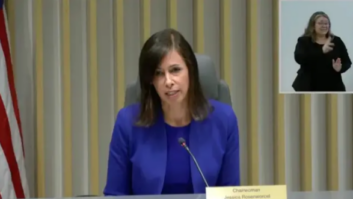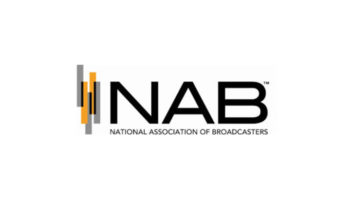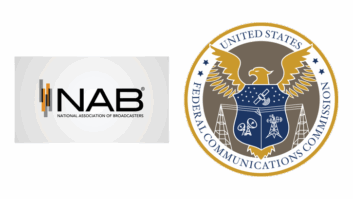The FCC Media Bureau said today, Dec. 8, it will proceed with adopting new foreign-sponsorship identification rules despite pushback from the National Association of Broadcasters. Several other groups joined the NAB in claiming the new requirements would be especially burdensome for small broadcasters.
The FCC adopted amended foreign-sponsorship identification rules in April to specifically target situations where a station broadcasts material sponsored by a foreign governmental entity. The new rules require disclosure of leased programming sponsored by foreign governmental entities.
The FCC said its modified regulations further the critical goal of transparency and it applies them to foreign governments, political parties and their agents.
[See Our Business and Law Page]
The NAB, the Multicultural Media, Telecom and Internet Council (MMTC) and the National Association of Black Owned Broadcasters (NABOB) this summer asked the commission to stay the order while their petition for review was pending before the U.S. Court of Appeals for the District of Columbia Circuit.
The groups’ lawsuit claims the FCC adopted “unnecessary and overly burdensome rules that violate the Communications Act, the Administrative Procedure Act and the First Amendment.”
Today’s FCC Order Denying Stay Petition officially ends the quest by NAB, MMTC and NABOB to delay implementation of the updated sponsorship identification regulations: “We find that the Petitioners have failed to make the required four-part showing to support such extraordinary equitable relief. Accordingly, we deny the request to stay the effectiveness of these rules,” the FCC wrote in the most recent order.
“Petitioners have failed to establish that broadcast licensees will suffer irreparable harm” in implementing the FCC Report and Order on foreign-sponsorship identification, according to today’s FCC filing. “We also find that the costs of compliance to broadcast licensees are not severe enough to be cognizable as irreparable harm.”
The commission, which believes the petitioners’ pending lawsuit is unlikely to succeed on merits, will now move forward with modified regulations “which seek to eliminate any potential ambiguity to the viewer or listener regarding the source of programming provided from foreign governmental entities.”
Although foreign governments and their representatives are legally prohibited from holding a broadcast license directly, foreign governments have contracted with broadcast station licensees to air programming of the foreign government’s choosing or to lease the entire capacity of a radio or television station without adequately disclosing the true source of the programming, according to the FCC.
The on-air disclosure would be required at the time of a broadcast if a foreign governmental entity paid a radio or television station, directly or indirectly, to air material. The old rules did not specify when and how foreign government sponsorship should be publicly disclosed.
The NAB, MMTC and NABOB maintain they support the FCC’s goal of public disclosure of foreign government-sponsored programming, but argue the new regulations impose rules on broadcasters “which collectively have many thousands of contracts for the lease of time to air programming — onerous requirements to make specified inquiries of, and conduct independent research on, all the entities with whom broadcasters currently or will in the future have lease agreements.
“The broadcaster must determine (and then announce) whether the sponsor of the programming is a foreign governmental entity or its agent, even if the leased programming (such as an infomercial or local religious broadcast) poses no colorable risk of foreign sponsorship,” NAB said.
The organizations said at the time it filed its lawsuit in September the rules would do little to address the problem of foreign interference in elections.
The organizations argued in an updated brief filed Tuesday night with the court that the FCC lacks the authority to impose the investigatory requirements mandated by the order. In addition, the organizations argued with the FCC’s justification for its rules is lacking as the commission cited only a few examples of foreign governmental entities sponsoring undisclosed broadcast programming as the reasoning for requiring every broadcast station to conduct inquiries for every existing or new leased programming agreement.
“The order also fails to address the problems with undisclosed foreign governmental programming on cable systems and the Internet, which is where the issue primarily exists, the brief argued,” according to the NAB.
In a statement to the press today, the groups said: “NAB, MMTC and NABOB strongly urge the Court to overturn the FCC’s flawed decision requiring overly burdensome investigations by every broadcaster into every sponsored program. While we share the Commission’s goal of ensuring the public understands when listening or viewing programming supplied by foreign governmental entities, the FCC’s order fails to adequately, sensibly or fairly achieve this objective. We appreciate the Court’s consideration of this issue and believe it will agree that the Commission overstepped its bounds.”
Comment on this or any article. Email [email protected].







